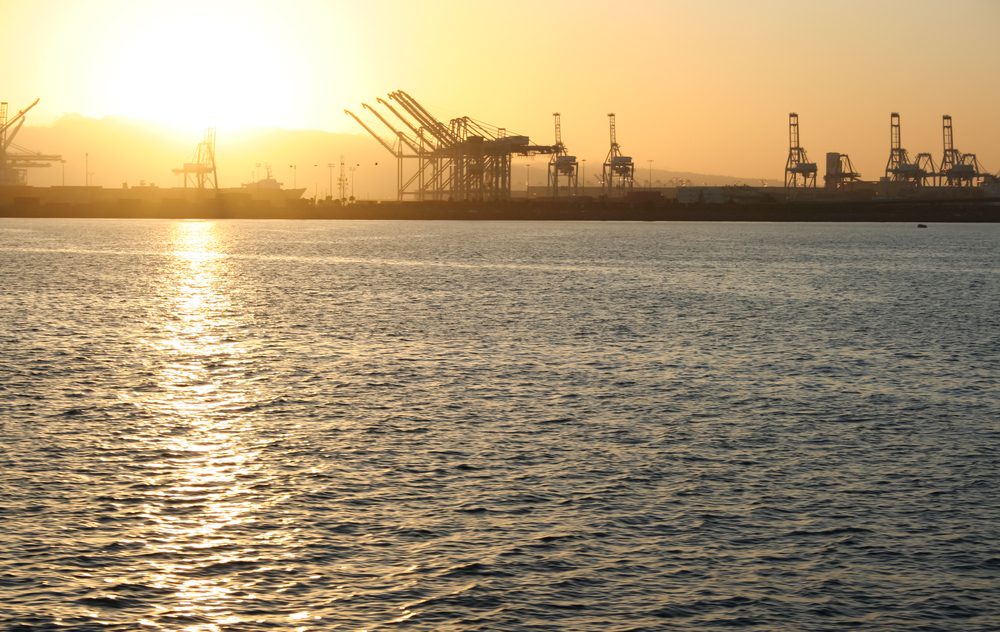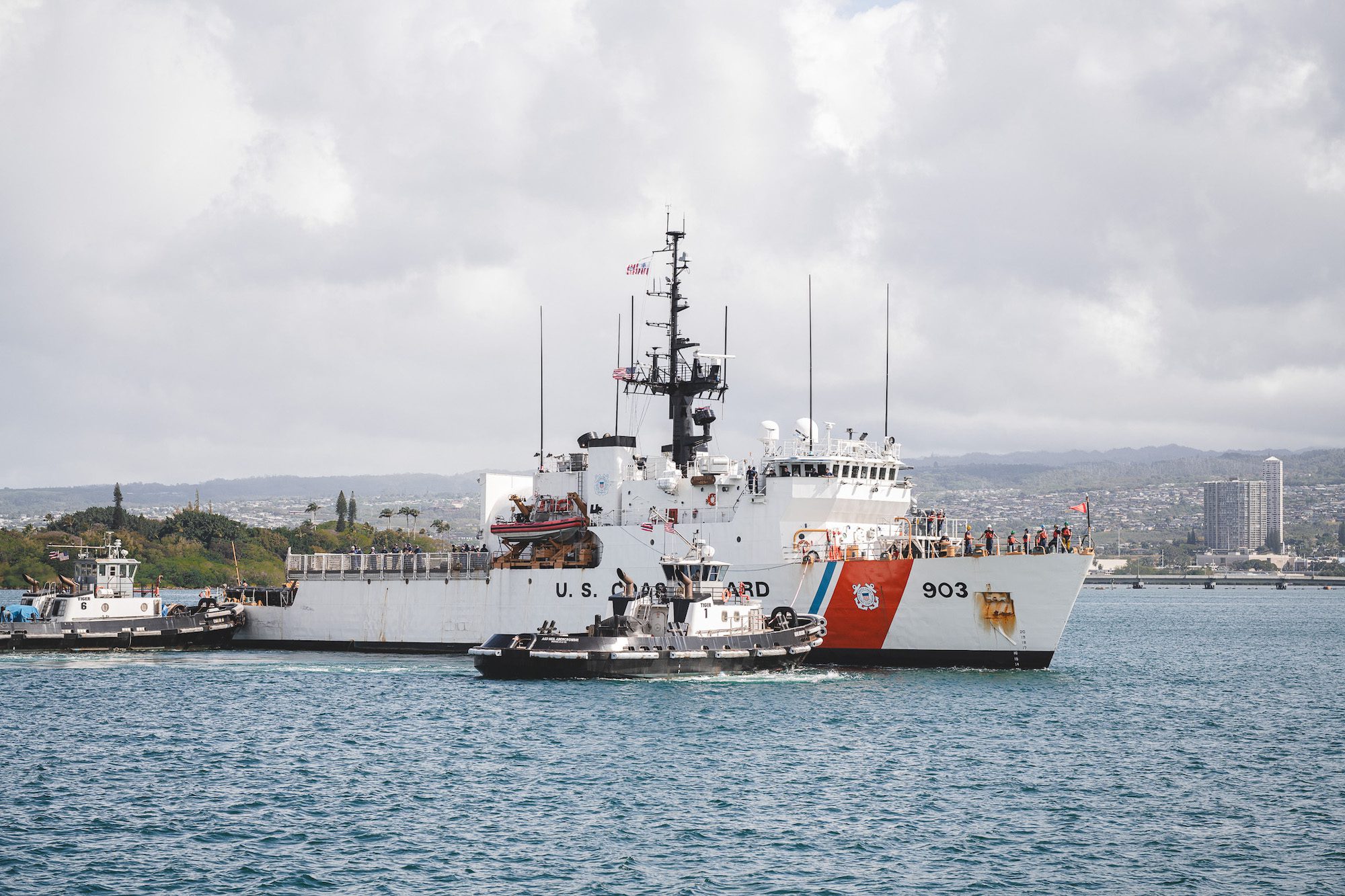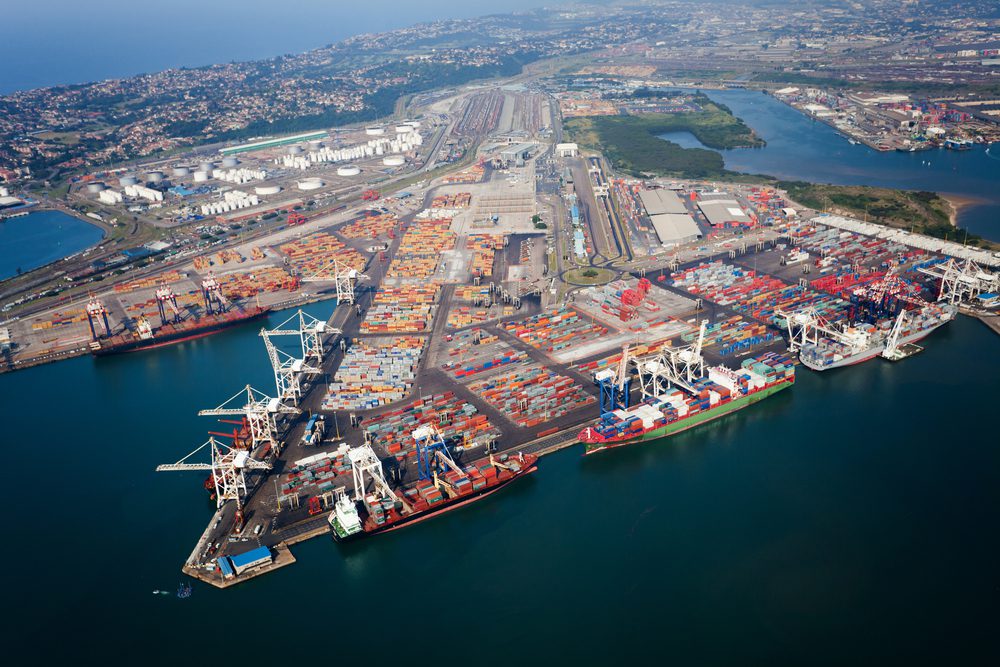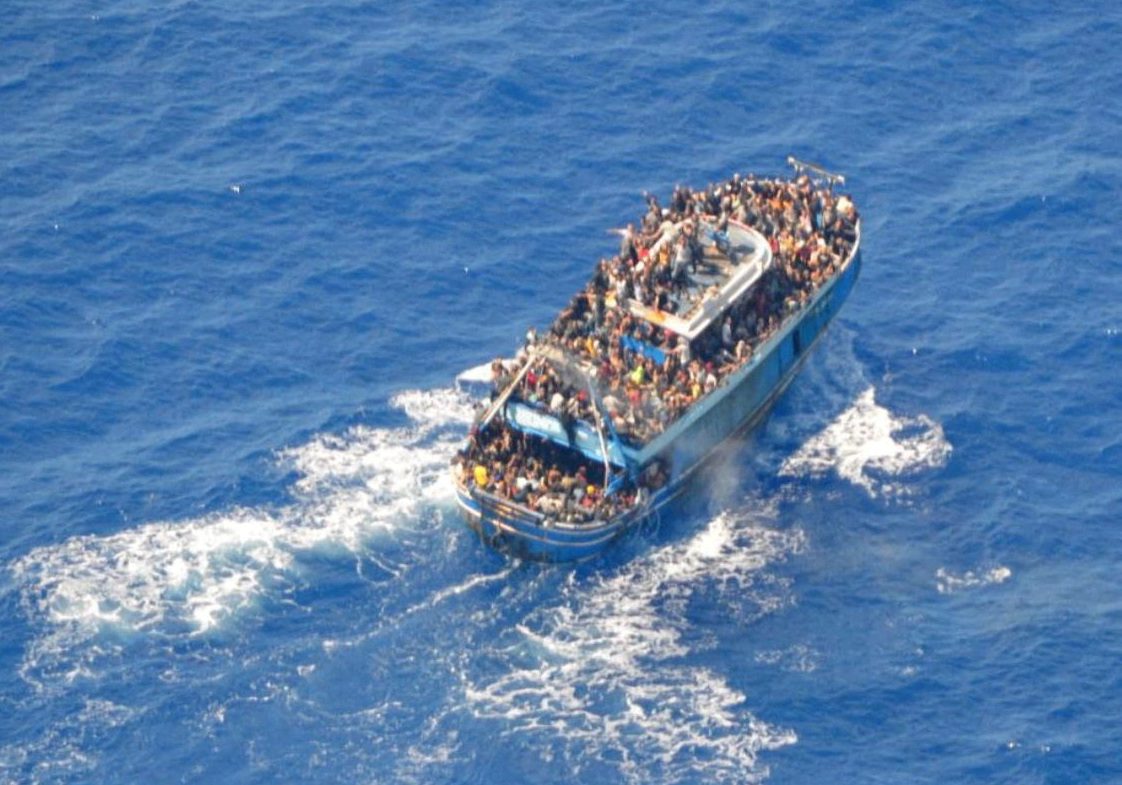By James Nash
Nov. 14 (Bloomberg) — Bargaining on a new contract for West Coast longshoremen has intensified after dockworkers who handle a majority of the nation’s cargo began selective slowdowns ahead of the holiday season.
Negotiators for the International Longshore and Warehouse Union and the Pacific Maritime Association, representing terminal operators and shipping lines at 29 ports from San Diego to the Canadian border, met last weekend, on Veteran’s Day and into the night Nov. 12, union spokesman Craig Merrilees said, describing the schedule as rare.
With no contract governing their actions, crews have slowed container handling by half in Seattle and Tacoma, walked out mid-shift in Oakland and been unavailable to run cranes in Los Angeles and Long Beach, according to Wade Gates, a maritime association spokesman, reducing productivity.
“They’re actually bargaining and making progress,” said Jim Tessier, a former official of the maritime association who now works as a labor consultant. “They both lose in a strike or a lockout, and they know it.”
Negotiators for the association and the union representing 20,000 dockworkers began meeting in May. After their six-year contract expired July 1, work continued without disruption. The public comity between the two sides ended Oct. 31 when the slowdowns began in Washington state.
‘Bald-Face Lie’
The maritime association released a statement accusing workers of reneging on an agreement not to undermine productivity at the ports, while the union responded with a statement calling such an agreement a “bald-faced lie.”
In a letter to President Barack Obama, the National Retail Federation said the rhetoric suggested that a coast-wide port shutdown “may be imminent.” The lobbying group has estimated that a shutdown or a strike could cost the U.S. economy $2 billion a day.
The job actions and expressions of indignation actually may signal that the two sides are closing in on an agreement rather than a breakdown in talks, said Nelson Lichtenstein, director of the Center for the Study of Work, Labor and Democracy at the University of California at Santa Barbara.
“These disruptions are designed to get a contract,” he said. “The union has been a good egg here, letting it go on beyond the deadline, and there’s been no incentive for the PMA to sign a contract.”
The slowdown spread to Los Angeles, where Bobby Olvera Jr., the president of longshoremen’s Local 13, told members at a morning work dispatch meeting to “work safe,” Tessier said, citing accounts from union members.
Safety ‘Code’
“That is absolutely code for working slowly,” Tessier said. “They don’t need to tell a longshoreman to work safely. If they don’t work safely, they get killed.”
Olvera didn’t respond to a telephone call and a message left at his office seeking comment.
In 2002, after a series of work slowdowns in which union members strictly adhered to all safety rules and dock speed limits, the Pacific Maritime Association locked out workers for 10 days. Then-President George W. Bush invoked the Taft-Hartley Act to obtain a court order reopening the ports.
The two sides are determined to avoid a repeat of that episode, given increasing competition from East Coast and Gulf Coast ports as the Panama Canal is widened, said George Lovell, who holds the Harry Bridges endowed chair in Labor Studies at the University of Washington, in Seattle. Bridges was the longshore union’s first president.
“This is how these things play out,” Lovell said of the disturbances. “A strike or a lockout would be a much bigger escalation than what we’re seeing right now.”
Automation, Salaries
Merrilees and Gates declined to comment on the substance or tone of negotiations, which are alternating between the headquarters of the union and the maritime association offices, both in San Francisco. Negotiators have been discussing salaries and overtime, automation and work rules after announcing they had resolved the issue of dockworker health care.
“Our priority is to negotiate a fair contract as quickly as possible,” Merrilees said.
The maritime association, in a statement, said the slowdowns “are complicating an already challenging holiday shipping season.”
“With two weeks before Black Friday, the last thing our economy needs is a shutdown,” Gates said. “For the sake of our economy, we call upon the ILWU to agree to a temporary contract extension while we continue to work on a new agreement.”
Truckers Protest
As the dockworkers and employers negotiate, about 120 truck drivers protested at the ports of Los Angeles and Long Beach yesterday in an unconnected labor dispute.
Los Angeles Mayor Eric Garcetti negotiated a cooling-off period for about 200 drivers with Green Fleet Systems LLC and Total Transportation Services Inc. who say the companies misclassified them as independent contractors to deny them wages. A third company, Pacific 9 Transportation Inc., isn’t part of the agreement.
About 10,000 drivers work at the two ports, said Barbara Maynard, a spokeswoman for a Teamsters Union effort to organize the drivers.
Copyright 2014 Bloomberg.
Unlock Exclusive Insights Today!
Join the gCaptain Club for curated content, insider opinions, and vibrant community discussions.

 Join The Club
Join The Club













